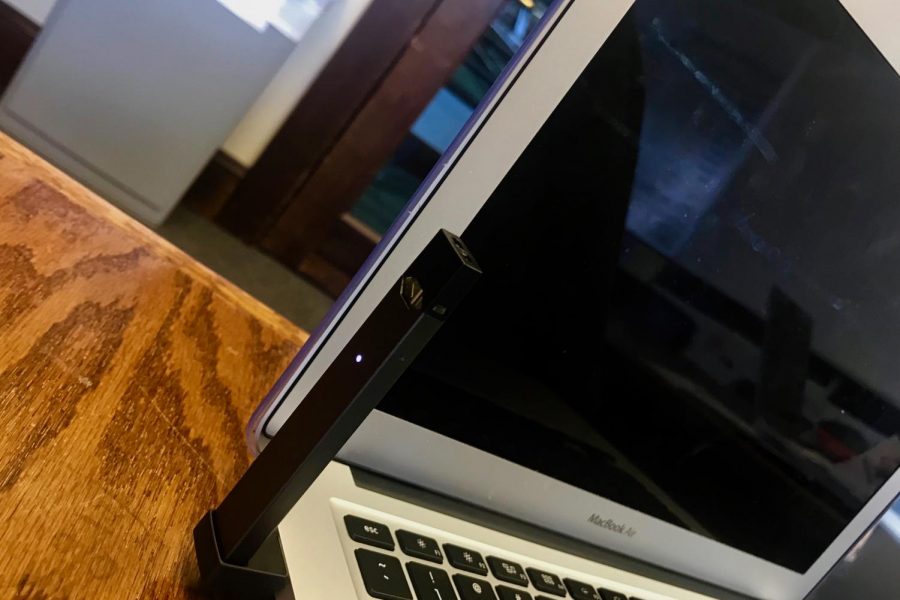The War on JUUL: Administration Cracks Down on Vaping
The sweet smell of Fruit Loops wafting through the atmosphere is one all too familiar for many high school and middle school students due to increased popularity of vaporizers and e-cigarettes among students across the U.S. The most attractive being the JUUL, an electronic cigarette resembling a USB, that uses pods that come in popular flavors favorable towards a younger market.
According to the FDA, more than two million middle and high school students were regular users of e-cigarettes last year, and it has been declared a “national epidemic.”
“I know at least 150 people who JUUL, although that is a big number at least 50% of all of those people are over the age of 18, I do believe that it could be classified as an epidemic among teens under the age of 18,” a senior said.
JUUL pods are sold in packs of four and range from traditional tobacco flavors to those more palatable for a younger market, such as mango, cucumber, and fruit medley. The pods cost around $16 dollars, making them economically accessible to younger age groups. After conducting an investigation about the widespread usage, the FDA has given e-cigarette companies like JUUL 60 days to exterminate all accessibility to minors or they face termination.
“It honestly starts off as a social thing. Your friend might have one and you could just get used to using it around them and then get your own,” a senior said, “and then it turns it to a pretty expensive addiction.”
The long term health consequences of the e-cigarettes are still unclear, but the immediate of risk of using a JUUL is the possibility that it will provide a gateway to traditional cigarette usage. This seems to be a misconceptions due to government efforts to educate students on the dangers of cigarettes has made them increasingly less socially acceptable.
“Everyone is like ‘oh at least it’s not a cigarette, it just has nicotine in it,’ but they don’t actually understand the risks of what ‘just nicotine’ can do to your body,” a sophomore said.
Each JUUL pod contains an unusually high dosage of nicotine, delivering the user with up to two packs worth the amount in cigarette. Many see their use of JUULs a harmless alternative to other drugs, similar to past generation’s veneration of cigarette.
“Some teens see it as a better alternative for smoking weed, and their parents accept juuling as long as they don’t smoke weed and allows these kids to continue smoking,” a senior said.
Darlington has responded to the JUUL outbreak with harsher consequences for those caught with a JUUL, in order to discourage students from participating or bringing the e-cigarettes onto campus.
“We’ve slightly changed the wording of the policy, the only difference, it used to say a student caught vaping or using e-cigs could be drug tested, but now it says will be drug tested,” Dean of Student Life Brant Evans said. “And there’s a reason for that, there’s been a lot of studies showing people are using synthetic marijuana inside of vaping paraphernalia, so it’s a risk that we run. If they pass the drug test, it is considered a tobacco violation.”
The hold of addiction on America’s youth is beginning to grow visible; however, those who are struggling with nicotine addictions have the opportunity to seek aid without disciplinary consequences through the health track.
“I would encourage any student who is struggling with an addiction to come forward and say I need help. And if they need help we will get them help,” Evans said.

